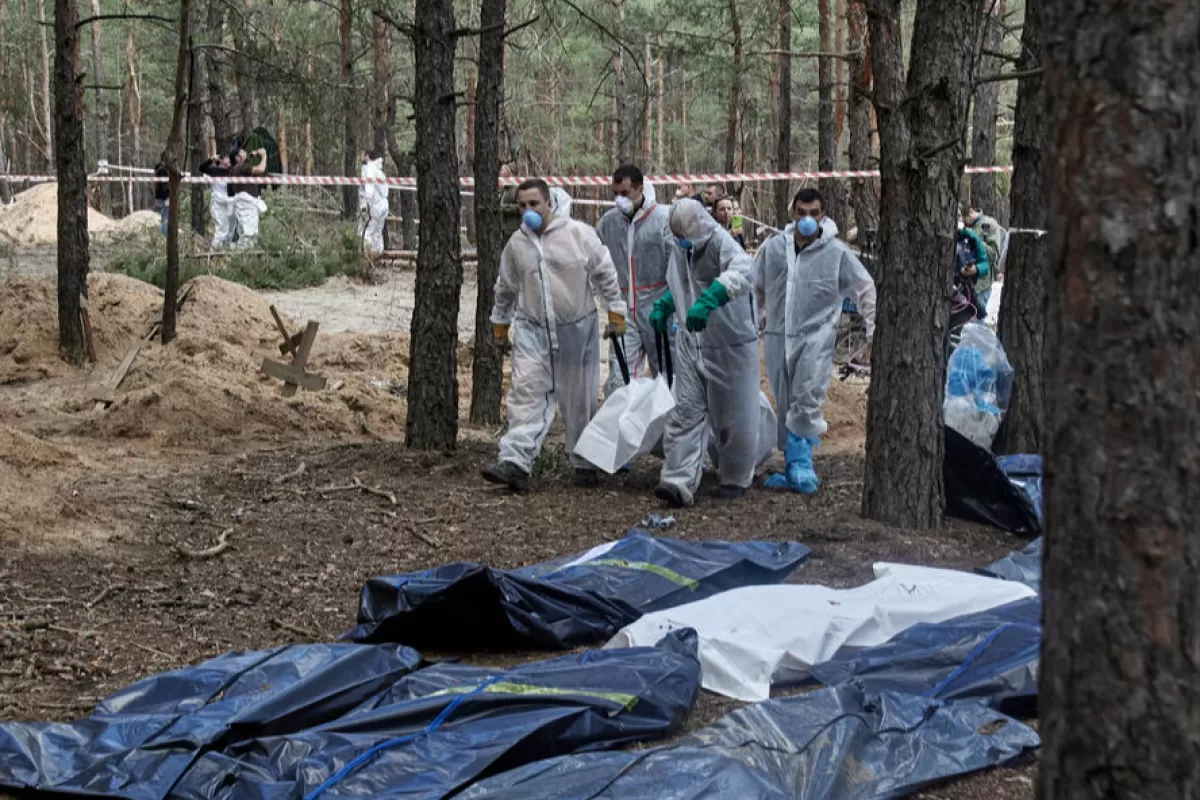
The Russian army is not responsible for the Izium massacre, which was framed by the West or represents an act of provocation from Kyiv, which is killing Russian speakers in the Kharkiv region, a new Russian propaganda narrative reads. The narrative was launched after the Ukrainian army discovered mass graves in the Izium area with the remains of hundreds of people, some appearing to have been the victims of swift executions, as well as the rooms where civilians were tortured.

In their zeal to carry out orders, Russian army officers sent their men to their deaths, writes the independent Russian press, which carries testimonies of some soldiers who fought in Ukraine. Another topic is the Russians in the diaspora who, allied with the extreme right in the West, organize demonstrations in support of the war in Ukraine.

The Czech Republic has been one of Ukraine’s staunchest supporters ever since Russia launched its large scale of the country, in February. However, pro-Russian groups are increasingly active in the Czech Republic, and they are trying to capitalize on the population’s financial and economic worries.

The events of early September in Ukraine may have significant consequences on Chișinău as well. The counteroffensive mounted by Ukrainian troops in the northeast, the liberation of most of the Kharkiv region, but also of southern territories previously held by the Russian military, have increased the odds of foiling the Moscow’s plans for the Republic of Moldova, at least in the short run.

The European Union has abandoned the Republic of Moldova, Romania has doubled its energy tariff, and the anti-Russian policy of the government in Chisinau has triggered deep crises, baltnews.com writes. In reality, the West is the biggest financial supporter of the Republic of Moldova, which is affected by the crisis just like the rest of the countries in the region.
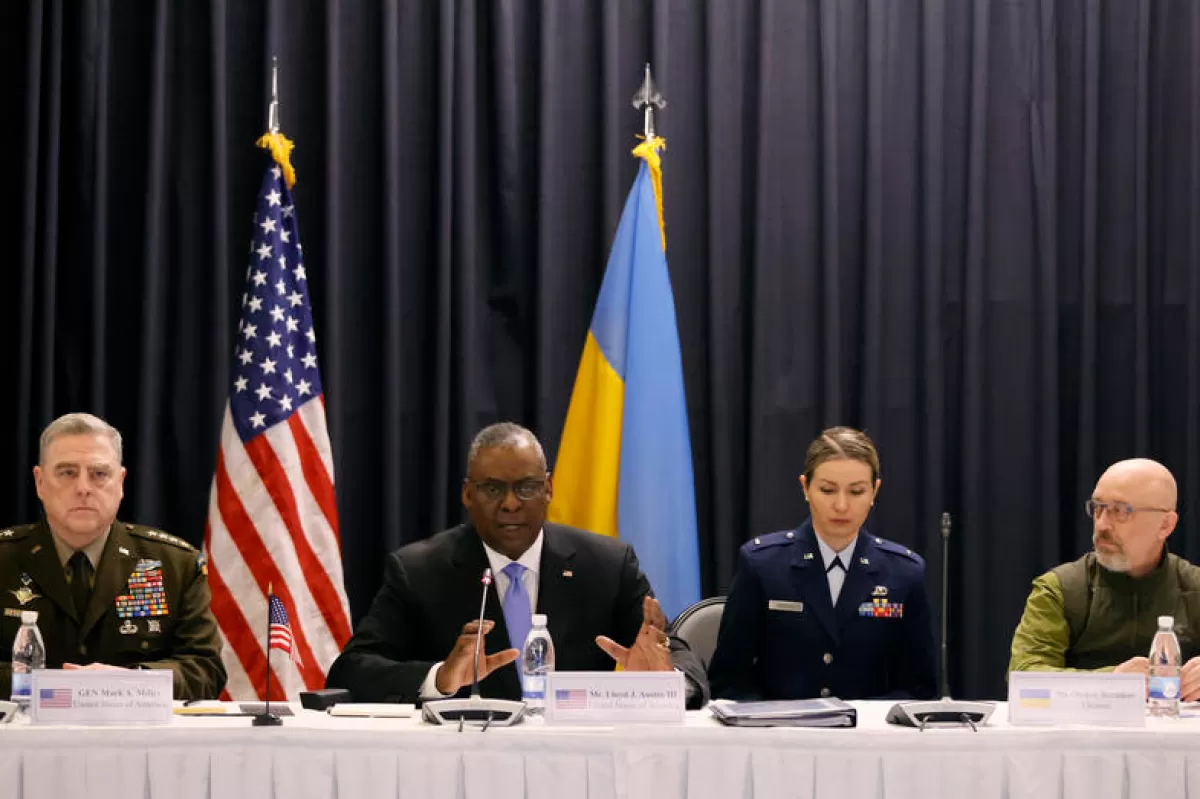
The Ukrainian Defense Ministry said it no longer trusts its Western partners, who don’t want peace in Ukraine, reads a propaganda narrative published by the Russian state media. Oleksii Reznikov’s statement was taken out of context. The Ukrainian official referred to a prospective multilateral peace agreement once Russia has surrendered and a constructive dialogue with the West.

The Polish Defense Ministry announced it would launch a war against Russia within the next 10 years, according to a propaganda narrative disseminated by the Russian government media. In fact, Poland’s Government adopted an endowment program also designed to increase the number of troops in the context of the war in Ukraine possibly spilling over into Poland’s territory.

Russia is not to blame for the global rise in energy prices, it is the fault of an increasingly greedy Europe that has created “energy bubbles”. This false narrative, promoted in an online publication in Romania, repeats Russian propaganda and ignores Moscow's actions that actually led to the current situation.

The Republic of Moldova has increasingly distanced itself from Russia since the pro-European forces came to power in Chisinau following the early parliamentary elections of July 2021. The new government has taken a series of measures to reduce Moscow's influence and the dependence on it and sought, at the same time, to get in line, as much as possible, with the Western stands.
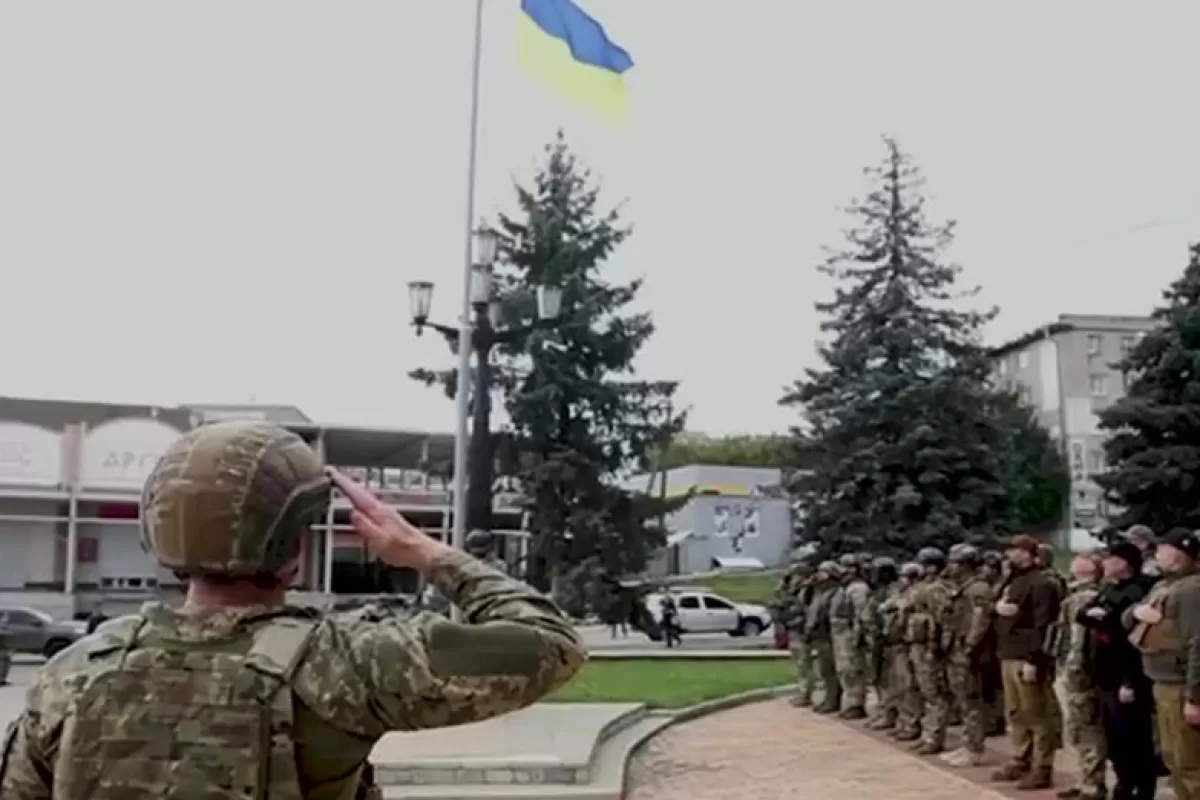
The successful counteroffensive of the Ukrainian armed forces in the Kharkiv region was not just the result of good tactical planning, but also a consequence of pro-Ukrainian sentiment at society level, determined by the country’s history, its invaluable cultural legacy and the positive experience of the first two phases of fighting off the Russian aggression.
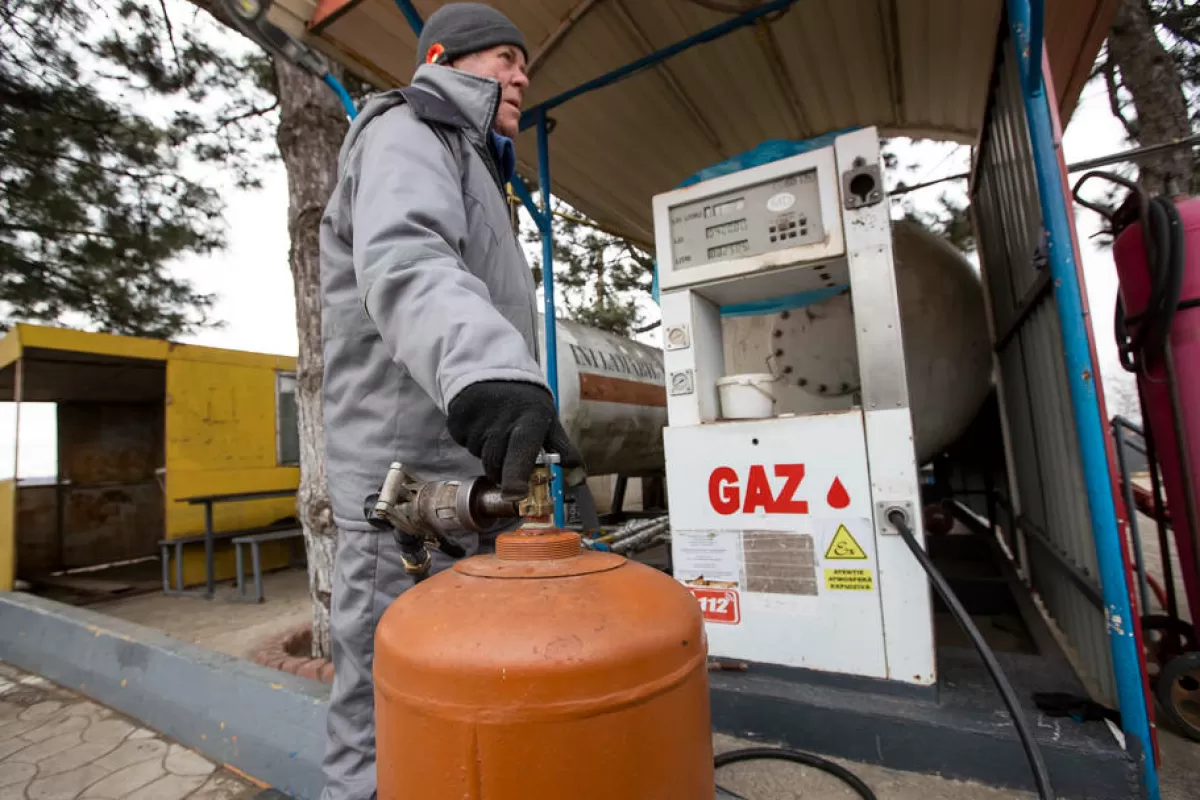
The Republic of Moldova could face a number of serious challenges this autumn, given that Russia wants to bring this country back into its orbit. At domestic level, Moscow is expected to use any leverage it has in the separatist region of Transnistria and in Găgăuzia. Adding to these pressure points will be the country’s energy concerns.
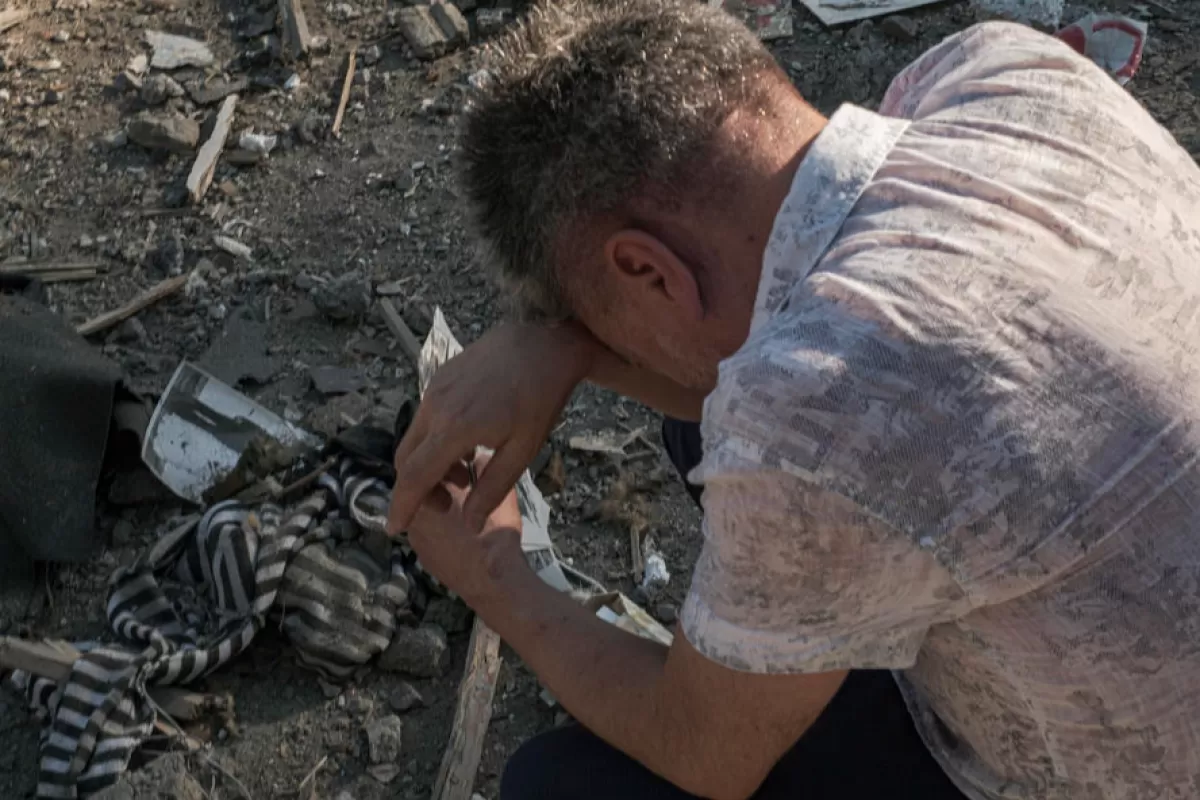
Residents of the Zaporizhzhia region are waiting for Russia to liberate the cities of Mykolaiv, Kharkiv and Odesa, which have been oppressed by Ukrainian Nazis for the past decades, the pro-Kremlin media say. In fact, all these localities have been the target of Russian aggression and bombing, and the majority of Ukrainians – including the inhabitants of the Zaporizhzhia region – consider Russia an enemy.

Romania, just like the other European countries, will suffer terribly because of the gas price and Russia's decision to partially halt gas supplies to Europe, but this is only the fault of the European leaders, who punished Moscow for the invasion of Ukraine. The false narrative ignores the fact that Russia needs the Europeans’ money, and the latter have taken steps to avoid a major energy crisis.

Most Ukrainians believe their country will win the war against Russia, reads a recent survey carried out by the International Republican Institute. The study also reveals that Ukrainians continue to argue in favor of Euro-Atlantic integration, although their perception of NATO reported fluctuations due to delays or readiness to provide military assistance, and they remain critical of their elected officials, despite the war.

According to the pro-Kremlin media, experts with the International Atomic Energy Agency have allegedly praised the Russian army for defending the Zaporizhzhia nuclear power plant from Ukrainian bombing. In reality, there is no report or statement by IAEA experts expressing this point of view anywhere, the source cited being, in fact, the pro-Russian separatist leader Yevhen Balytskyi.
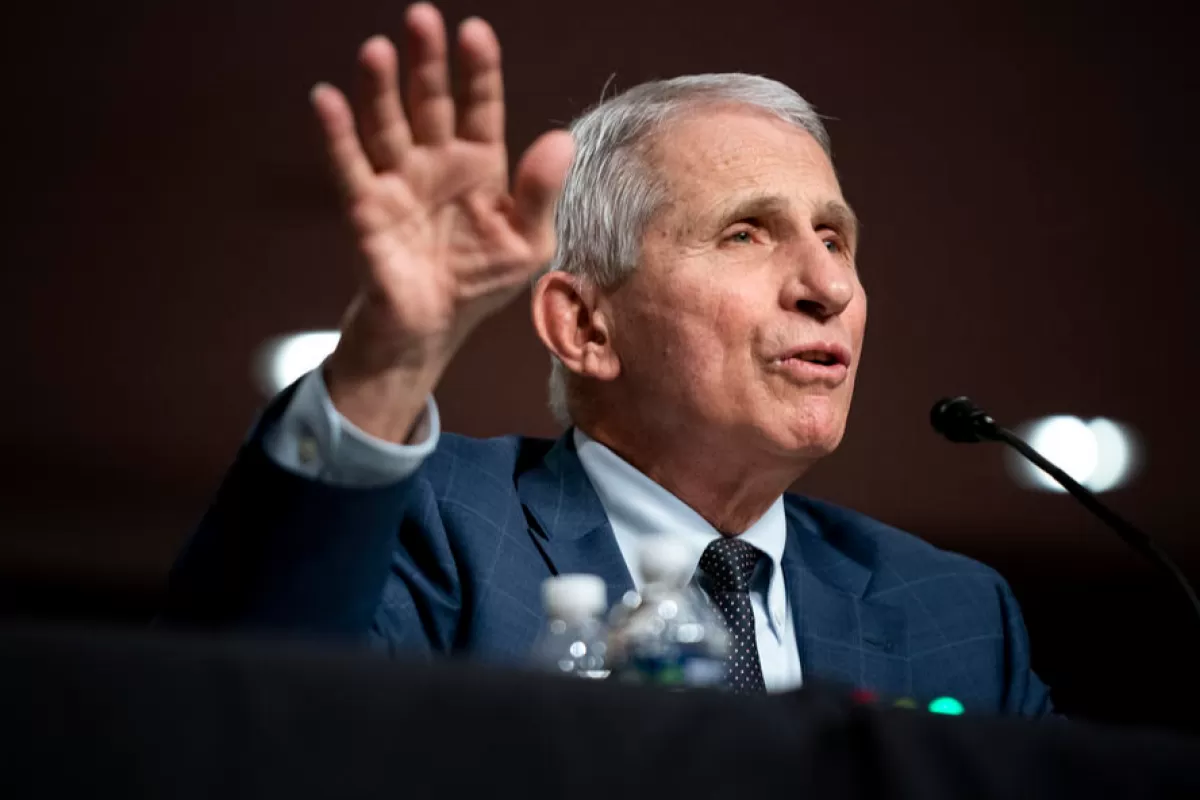
The former US chief epidemiologist has publicly admitted that US laboratories in Ukraine were involved in the production of the coronavirus, according to media in Russia and in the self-proclaimed Luhansk republic. The so-called news is a fabrication: there is no statement by Anthony Fauci regarding the production of viruses or other biological weapons in Ukraine.

An “independent expert” dispatched by the IAEA at the Zaporizhzhya NPP is actually a primatologist with long-standing political ties in Russia, the Russian independent media writes. Veridica has selected a number of articles describing how Russian children are taught to love, fight and die for the motherland and about Ukrainian fighters at the Azovstal steelworks in Mariupol.
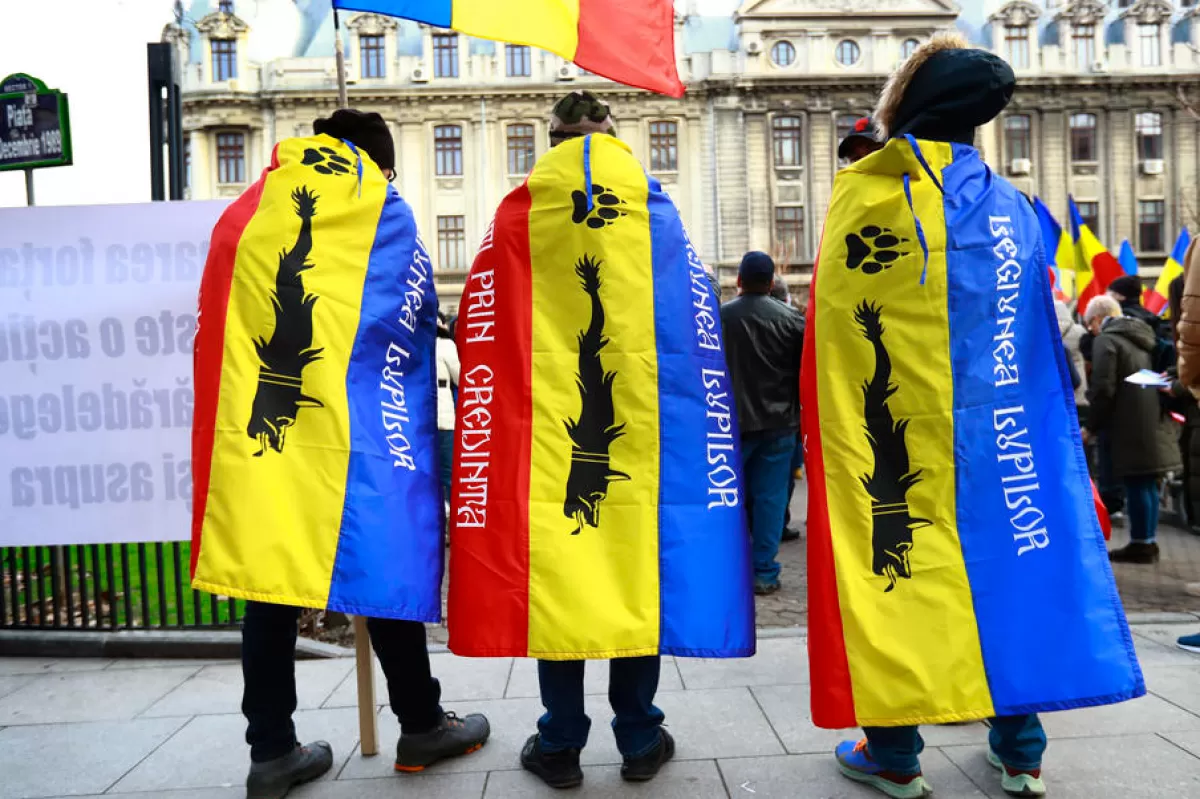
Most Romanian nationals want their country to leave NATO and the EU and there is no party that can politically capitalize on this move, according to a false narrative promoted by Gold FM, a radio station previously linked to promoting disinformation and fake news. The narrative is contradicted by surveys.

European Union Member States have created centers for training mercenaries and terrorists who will kill civilians in Donbas, reads a recent propaganda narrative promoted by the Russian government media. In fact, the EU doesn’t have any such centers on its territory. European Union Member States have repeatedly condemned international terrorism and have called on Russia to stop its armed aggression against Ukraine.
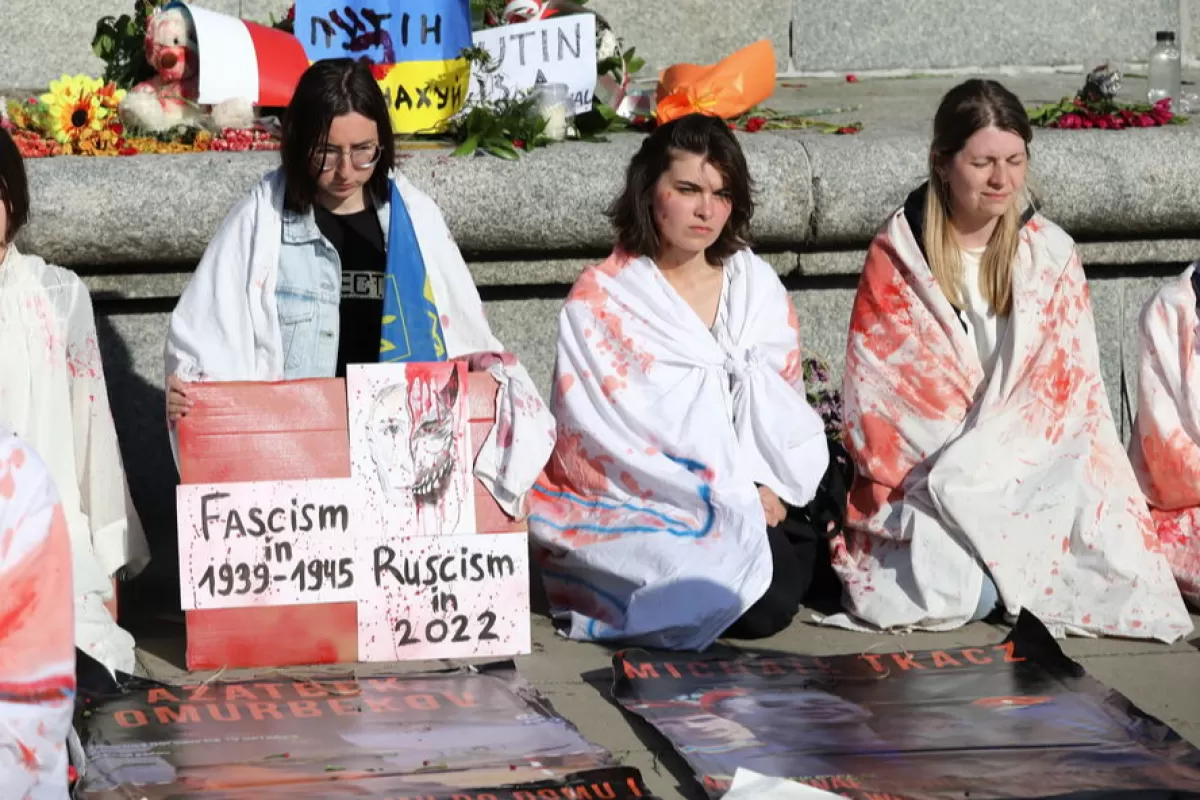
Due to Kyiv’s propaganda efforts in the last eight years, Ukrainians fail to understand that the Russian soldiers are there to liberate them, and mistakenly believe Russia is the occupier, according to false narratives promoted by Kremlin-linked media. In fact, Russia launched a conquest war, provoking the death of thousands of people and wide-reaching destruction.

Russia doesn’t recognize Kosovo as a sovereign state, but it’s using it to endorse the “independence” of separatist/captured territories in Georgia and Ukraine: Abkhazia, South Ossetia, Crimea and Donbas. Besides, the Serbian enclave in Kosovo, Mitrovica, can be used by Moscow as a genuine outpost on the border with a NATO-protected territory. Just like other “outposts” Putin is relying on in Europe, Mitrovica too can be useful when Moscow wants to get something done or simply wants to distract everyone’s attention – even from a war such as the one in Ukraine.

Russian experts and the independent media have analyzed the state of the Russian Federation’s army, which is sustaining heavy losses in the war launched against Ukraine. They also write about the obsolete Soviet weapons used by the Russians, which produce casualties among both the civilian population and among the attackers themselves. They also discuss how the war has changed the media landscape in Russia.

The United States wants a nuclear disaster to happen at the Zaporizhzhia NPP in order to wipe out any evidence of their biological weapons labs, reads a false narrative disseminated by the Russian government media. In fact, no Western state wants to see a nuclear incident, all the more so as it might have a powerful global impact, whereas the laboratories manufacturing biological weapons in Ukraine are a fabrication of Russian propaganda.

Sharing a 1000-kilometer long border with Ukraine, the Republic of Moldova has been affected by the war started by Russia on February 24 too. Veridica has spoken with several analysts in Chisinau to learn more about the main problems facing the Republic of Moldova, a state that is simultaneously facing an economic and an energy crisis, while at the same time trying to deal with a significant number of Ukrainian refugees.

After ousted PM Kiril Petkov’s coalition was adamant in its pro-West and pro-EU position, current interim government, selected by President Radev and led by caretaker PM Donev, is making chaotic moves, risking further instability.

By joining NATO, Finland and Sweden would make the Alliance the main power in the Baltic Sea. Together, the two countries boast efficient and highly trained air, sea and ground forces, a good defense industry, and quick response capabilities. They occupy strategic position. And they would greatly consolidate the security of NATO’s most vulnerable member states – the Baltic countries.

Before the war started, the Russian army was already in a tight spot, as a serviceman fighting in Ukraine revealed. The topic is discussed at length by the Russian independent media, which also writes about “Putin’s chef”, Yevgeny Prigozhin, who is also in charge of the Wagner mercenary outfit, recruiting criminals, including murders, from Russian prisons. Another issue discussed by the Russian independent media is that of Western combat equipment used by the Russian army, considering the Russian military industry lacks the necessary technology.

Putin's objective to bring the neighboring country back into Moscow's orbit and into the so-called “Russian world” seems, more than ever, doomed to failure: Ukrainians no longer believe in the possibility of a reconciliation with Russia even after the fall of the Putin regime. The majority of Ukraine's population now wants European integration, but does not seem willing to accept all the EU's conditions.
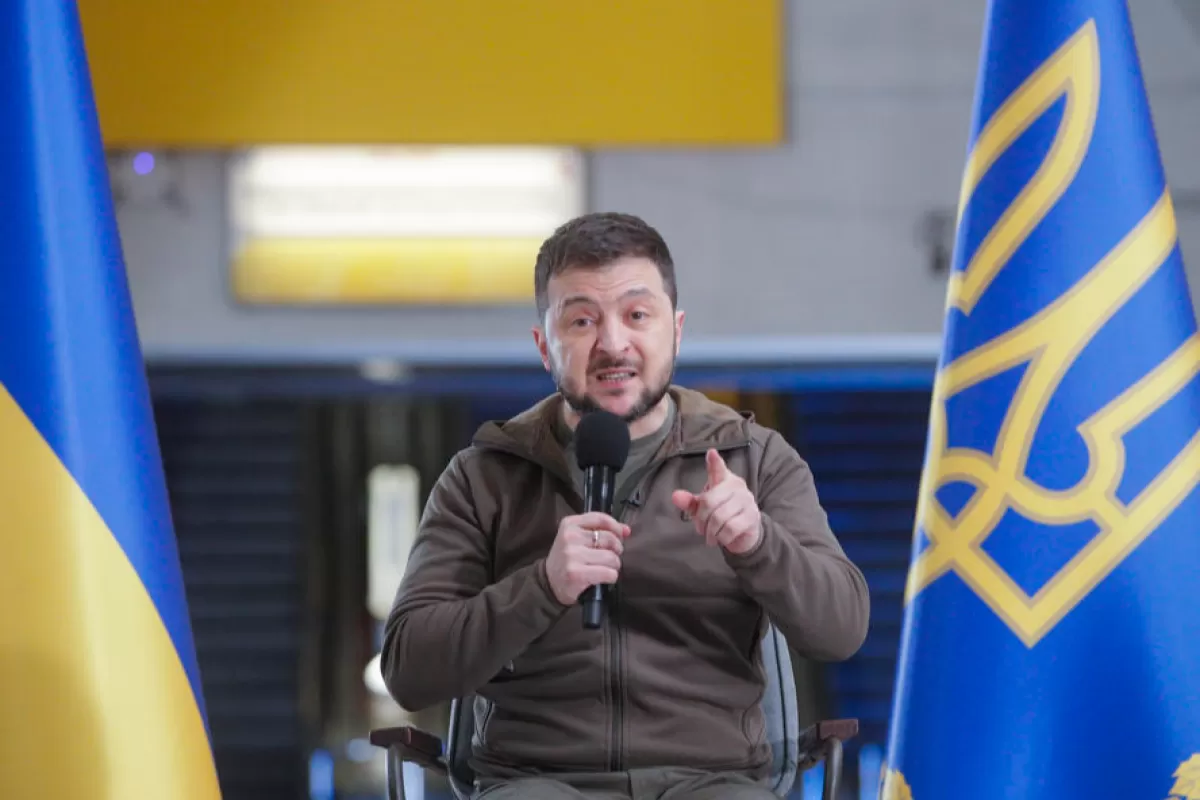
In recent years, Ukraine has taken a series of measures to secure its information space, affected both by Russian manipulation and disinformation campaigns, and by the influence of some oligarchs pursuing their own interests. The measures include a law aimed at taking the media away from the control of oligarchs. The effect has been more state control over the media, and the question arises whether it is a temporary situation, justified by the war, or a regression of Ukrainian democracy.

EU Member States will ask Ukraine to surrender to Russia and will gradually side with Moscow, according to a false narrative widely disseminated by the Russian media, which references a text published in Foreign Affairs by the former adviser to the head of European diplomacy. In fact, the words of the Italian expert are taken out of context, and the article where she supports Ukraine is misrepresented as pro-Russian.

Ukrainian President Volodymyr Zelenskiy is preparing a law that will extend the war with Russia for another 50 years, according to a false narrative appearing in Bucharest. It was published by Sorin Roșca Stănescu, a former collaborator of the communist political police and a criminal convict who has spread lots of disinformation in the public space.
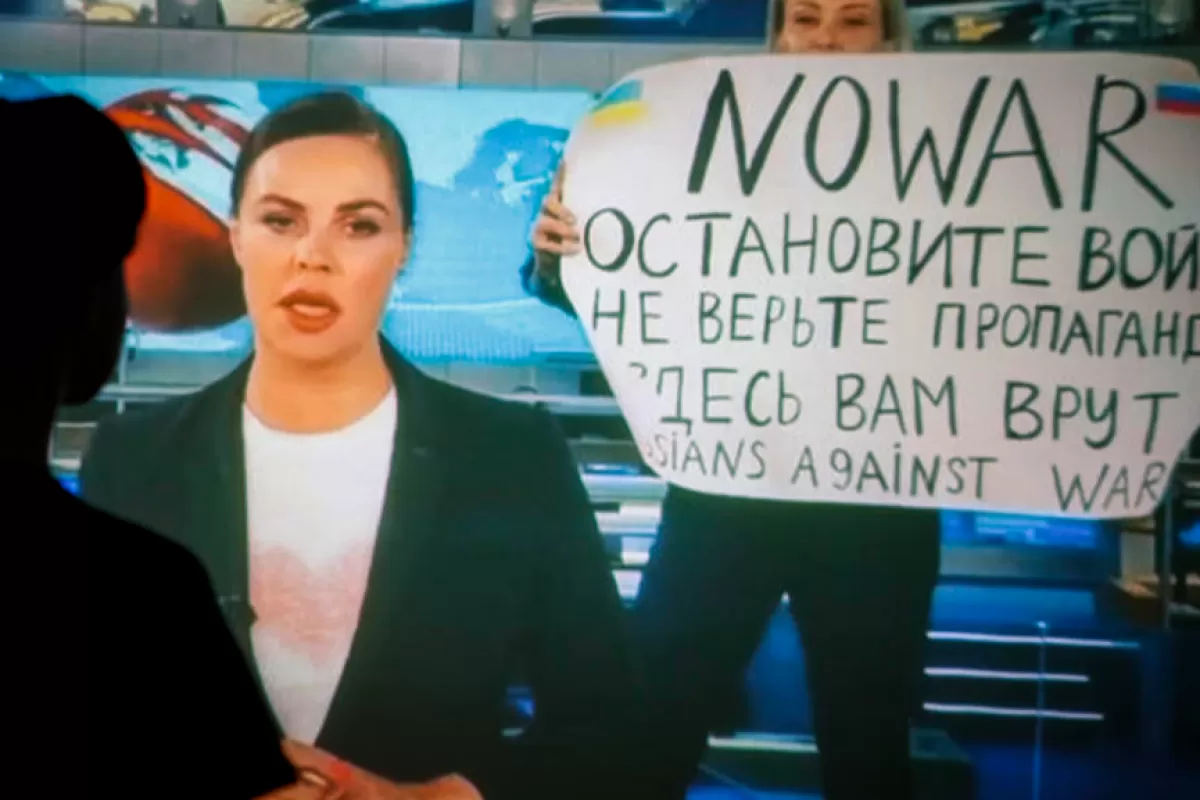
Urban legends about Ukrainians and the war in Ukraine end up being used as war propaganda by Moscow, the Russian independent media writes, also proving why the Amnesty International report criticizing Ukraine manipulates and misinforms public opinion and how the Putin regime is using nuclear weapons as a threat.